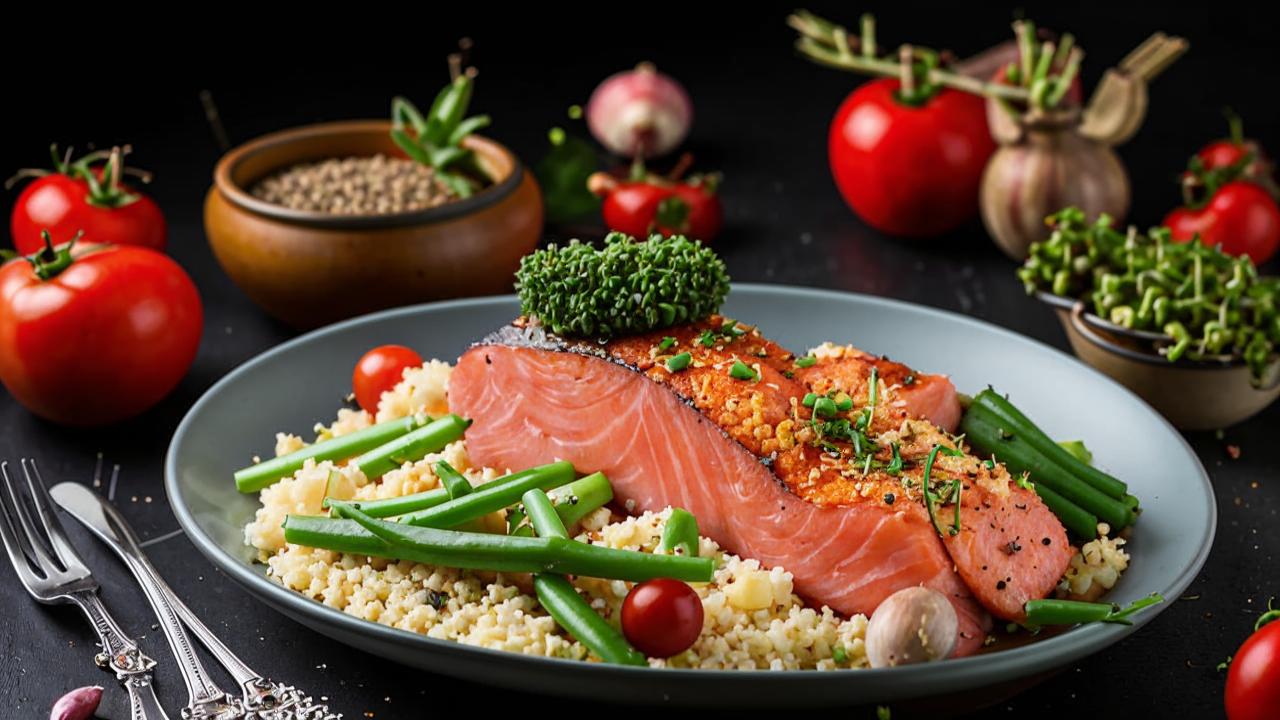We tell the real story together with an expert.
Sometimes wishes come true in a very unexpected way – as if they were fulfilled by someone with a very sophisticated imagination. That’s what happened to me once when my weight loss plan didn’t go according to plan. In 2020, after suffering from covida, I lost my appetite: I couldn’t eat anything but oatmeal. A month later, the disease passed, but the side effect stayed with me for almost a year. Despite the complications, this story taught me something.
I avoided animal products, even the smell made me sick. But that’s something I could theoretically do without for a very long time. What can’t be said about coffee, frosted cheese and buckwheat – my favorite items, without which I was really uncomfortable. I started looking for alternatives: I brewed chicory, bought bitter chocolate and cooked bulgur. But even here I failed, as absolutely all tastes and smells were highly distorted. For example, the pineapple had distinct notes of dirty socks with rotten eggs. Buckwheat could easily be confused with earth, and the smell of coffee resembled strong cigarettes.
After a few days of hungry searching, I found an edible dish. It turned out to be monastery oatmeal: water-based, without salt, sugar or butter. Not many people like it, and I was one of that minority. So I expected to be able to hold on to the porridge for a while. And, needless to say, to lose weight at the same time. As the days, weeks, months went by, the other food still sucked. Enthusiasm became less and less, and already on the third month of forced diet I began to sound the alarm. I went to the Internet to find something on this topic. But at that time there was no information – the opinion of doctors and even the advice of sofa critics. There were also visits to the doctor, but the latter only shrugged their shoulders.
Emotional state also left much to be desired. When I met with friends somewhere in a cafe, I could not order anything. And everyone felt uncomfortable. It seemed that I was crazy or stuck in some parallel universe, where only I noticed that the matrix had failed. No one understood me, and I didn’t know what to do about it. Meanwhile, my body had no choice but to “eat” fat and muscle for energy. I lost a total of 8 pounds (I was 52 pounds, became 44) – for the first time not of my own free will.
When everything came back to normal and what conclusions I made
About the eighth month of the starvation diet, I suddenly found out that I could eat an apple, pasta, bitter chocolate without disgust. After some time I started to include other products in my diet. But animal products and all sorts of harmful things like chips and sweet batochniki do not eat to this day. But after this situation I can say for sure that I fell in love with food all over again and realized how cool it is to have a healthy appetite.

What a nutritionist thinks about this

Nutriciologist, hormone restoration specialist, MIIN tutor
Intolerance to a number of foods and lack of appetite is a frequent consequence of coronavirus infection.
Against the background of transferred covirus, encephalomyelitis is often observed – inflammation of the nervous system, which remains when the virus leaves the body. In this case, not only the central nervous system is affected, but also the peripheral and autonomic. This, in turn, hits the gastrointestinal tract: loss of appetite, stomach acidity and intestinal function are disturbed, bile flow is impeded.
Without full nutrition, the body functions in survival mode, experiencing deficiencies of macro- and microelements, vitamins and minerals. Due to failures in the system, a person faces aversion to some food, suffers from attacks of nausea. Disorders of eating behavior after coronavirus are different: some, for example, stop eating fruit, meat, milk, sweets, can not tolerate the smell of fried food. Changes in tastes are due to the destruction of olfactory neurons, as there is a direct connection between the sense of smell and the brain. Recovery can take 3-12 months.

These consequences were faced by Alia, who was forced to eat oatmeal on water for several months due to her perverted sense of smell. The coronavirus infection caused significant damage to her health, taking all of her body’s reserves, and the oatmeal diet exacerbated the deficiencies. Lack of protein, fats, vitamins and trace elements led to GI and hormonal system problems, weakness, apathy. This is due to the fact that porridge can not replace a full balanced diet. It only fills the need for carbohydrates, but does not give full satiety, even if you add fresh berries to the product.
What to do if you find yourself in a similar situation
Make a complete diet
The recovery menu should be complete: it should contain proteins (vegetable and animal), complex carbohydrates, healthy fats and fiber. It is worth eating five times a day in small portions (every three hours). Prepared food should be warm or room temperature, preferably chopped, for example, in the form of mashed potatoes or jelly.

It is also worth limiting simple carbohydrates and sugar substitutes, but increase protein intake to 100-120 g per day. It is desirable to increase the proportion of vegetable fats and foods containing Omega-3: vegetable oils, fatty fish, nuts.
Fiber is also important, as it helps maintain normal intestinal microflora. Look for it in green vegetables, whole non-starchy fruits, berries. And from alcohol and carbonated drinks it is better to refuse.
Be physically active
An excellent addition to therapy will be daily exercise: walks in the fresh air, yoga, training in the gym, Pilates, gymnastics.
For emotional relief and stress relief, you can perform breathing practices, meditate or try aromatherapy: light candles or turn on the aroma lamp with oil of eucalyptus, cloves, lemon, lavender, rose. In addition, you can brew, for example, ginger tea. The drink improves appetite, helps to cope with disorders, makes it easier to digest food.
Recovery of the body after COVID-19 is a long process that requires awareness, attention and care for your health.





